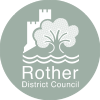We sample foods to make sure it is clean and safe to eat.
Environmental Health Officers visit retailers, caterers and manufactures to take samples of the food they sell or make. Food sampling can be part of national campaigns, for example, taking salads from fast food premises to monitor for cross contamination, and cooked chicken from retail premises checked for microbiological safety. The samples are sent to the Public Health laboratory for examination.
Where unsatisfactory results are obtained further investigations are made and corrective action put in place to improve standards.
For more information on food sampling in the Rother area please view our Sampling Policy and Programme for 2024-2025.
Food Sampling Policy 2024-2025
The Food and Safety Team of the Rother and Wealden Environmental Health Service recognise how food and water sampling, examination and analysis is a significant control measure in securing food safety and hygiene, monitoring compliance with legal standards, and ultimately protecting the final consumer.
Food and water sampling also provides useful information to: –
- Assist in making local risk based decisions on the food work programme
- Inform businesses and reassure the public about food safety issues
- Provide evidence to food businesses on the effectiveness of their management systems, procedures and standards
- Address local and national food safety campaigns and concerns.
Suitably qualified, trained and authorised Officers will be responsible for undertaking the food sampling function. Samples are taken in compliance with the Code of Practice.
Each year the shared service develops and publishes a sampling programme, as required by the Food Law Code of Practice (England) June 2023. This Policy has also been prepared in consultation with the Public Analyst and the Food Examiner.
When developing the annual programme, we will ensure it will be delivered within existing resources, and have regard to: –
- the previous years’ sampling results
- local businesses that either manufacture or retail high risk products
- food complaints
- national or regional campaigns or issues
Sampling during routine Inspections
Food sampling is not normally carried out during routine food hygiene inspections, although the decision whether to take samples is at the discretion of the inspecting officer. Circumstances where it maybe deemed appropriate for sampling to be carried out during an inspection: –
- If there is a history of poor food sample analysis results from the premises
- If the officer suspects food safety controls may not adequately protect the safety of the food
- If a complaint or an allegation of food poisoning has been received in respect of food at that premises.
More commonly officers may carryout hygiene swabbing of surfaces or equipment. The APT swabs used by officers provide a means of checking and demonstrating if the controls used by a food business are effective.
Types of Sampling – Routine
- National Sampling Campaigns
Each year the ‘UK Health Security Agency’ (UKHSA) publishes several sampling Studies which every Local Authority is encouraged to participate in. This shared service recognises and fully supports these national Campaigns as they help to identify and research areas of concern, and to establish microbiological criteria for the composition of different food and food products.
- Regional Sampling Campaigns
Each year all Local Authorities linked to Colindale and Porton Down laboratories are invited to participate in regional campaigns. The chosen topics may be topical to the region, projects not selected for national campaigns, or provide a means to further investigate new and emerging concerns. Again, the Rother and Wealden shared service is committed to participating fully with these projects.
- Rother and Wealden District Monitoring (Local)
The districts of Rother and Wealden are home to several manufacturers of ready to eat foods, including a number of approved premises. During the year we will look to carryout sampling from some of these manufactures as part of a planned sampling study which will help verify food is being produced safely and in compliance with legal standards.
During sampling visits, a mixture of food, environmental swab and potable water samples will be taken, subject to the officer’s discretion. The samples will be submitted to our appointed accredited laboratory (Porton Down).
- Rother and Wealden Cleaning Project (Local)
Broadly Compliant premises due for inspection, can be subject to an Alternative Intervention Sampling Visit instead of receiving a routine inspection. This is starting from the 1st of November 2023.
These unannounced visits focus on Cleaning standards and utilise surface swabbing to establish the effectiveness of the cleaning and disinfection practices in place. Worktops, chopping boards, fridge door handles, meat slicers and taps are just a few examples of the swabs taken.
Types of Sampling – Investigative
Such sampling will only be carried out when the investigating officer deems it appropriate, for example: –
- Before, during or after routine inspections for the purpose of enforcement, process monitoring, or to assess the safety of particular foods
- Following a complaint (Food will normally be sent for analysis if formal action is likely as a result of the complaint, or where it is alleged that illness was caused by the consumption of the food in question).
- As part of a special investigation e.g. a suspected food poisoning outbreak, product withdrawal etc.
Interpretation of Results
All sample results are interpreted using appropriate guidance for the product sampled i.e. Health Protection Agency Guidelines for Assessing the Microbiological Safety of Ready-to-Eat Foods Placed on the Market (Nov 2009).
Where results are found to be unsatisfactory, or suggest a problem during handling, manufacture or cleaning, officers will normally visit the premises to investigate further and take appropriate action to protect public health. This may also involve the taking of re-samples.
Food businesses will be informed of the results of any food sampling carried out at their premises, both resulting from routine sampling projects or as part of a complaint or investigation.
Food Sampling Programme 2024-2025
Study 80: Cheese
Type: National UKHSA Sampling
Months: April 2024 – March 2025
Study 81: Tattoo and Piercing Premises
Type: National UKHSA Sampling
Months: June 2024 – November 2024
Study 82: Raw Shell Eggs (Reactive Study)
Type: National UKHSA Sampling
Months: July 2024 – March 2025
Local Sampling Programme: Planned Approved Premises/Manufactures Sampling
Type: Rother & Wealden
Months: April 2024 – March 2025
Cleaning Project: Swabbing from business ‘5 rated’ and/or high visitor numbers
Type: Rother & Wealden
Months: December 2024 – February 2025
District Intervention: Reactive Sampling (Sampling identified via programme food inspections or complaints)
Type: Rother & Wealden
Months: April 2024 – March 2025

